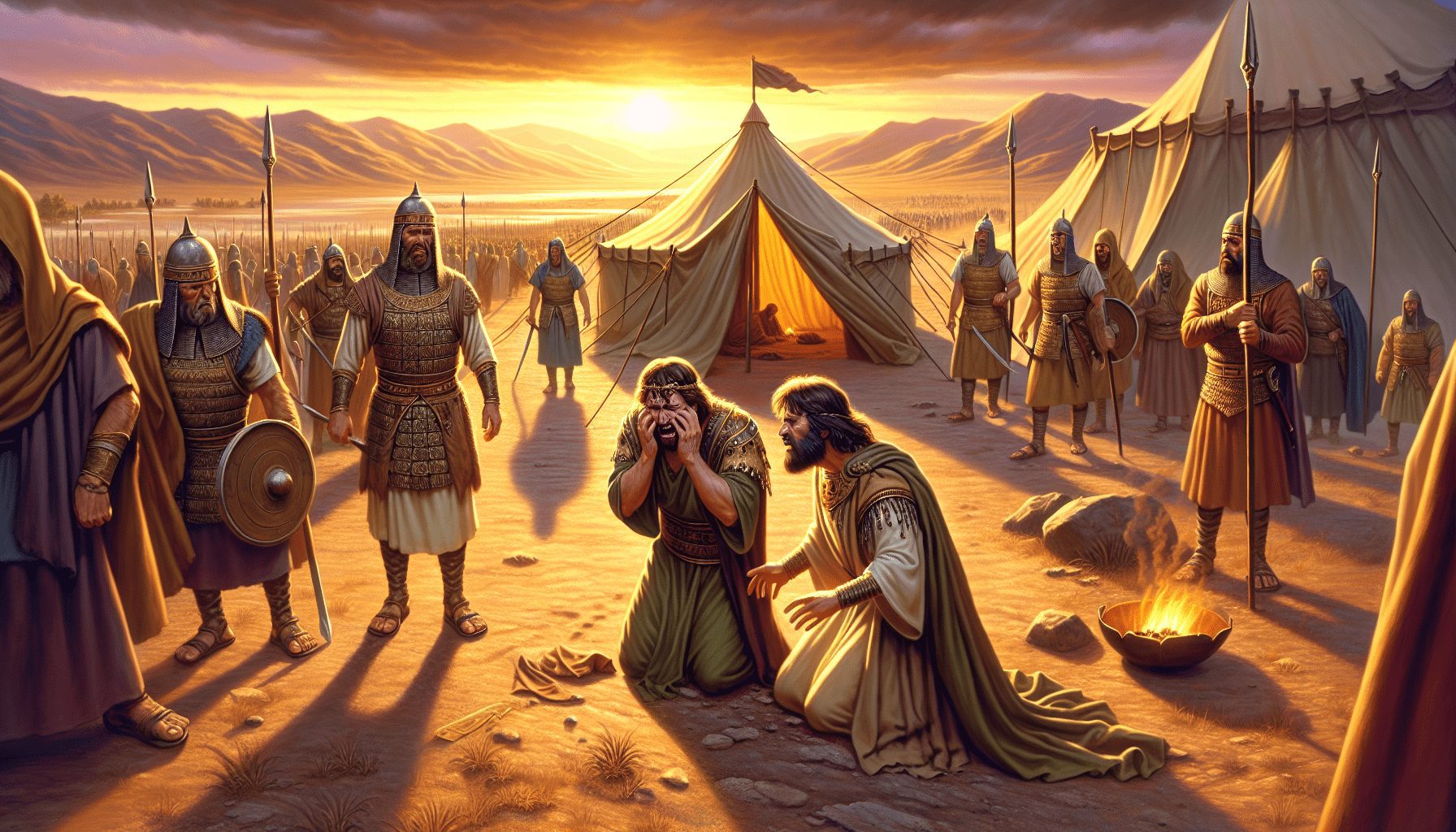**The Righteousness of Job: A Reflection on Job 31**
In the land of Uz, there lived a man named Job, blameless and upright, one who feared God and turned away from evil. Though calamity had stripped him of his wealth, his children, and his health, his integrity remained unshaken. As he sat in the ashes, scraping his sores with a broken piece of pottery, his heart burned with the need to defend his innocence before God and man. With a voice both weary and resolute, Job began to speak, laying bare the righteousness that had guided his every step.
### **A Covenant with the Eyes**
Job raised his head toward heaven, his sunken eyes still gleaming with conviction. *”I have made a covenant with my eyes,”* he declared. *”How then could I gaze upon a young woman with lust?”* He had disciplined his heart, refusing to let desire corrupt him. For he knew that such sin was not merely an offense against man—it was a fire that would consume his very soul, a wickedness deserving of divine judgment. *”If my heart has been enticed by a woman, or if I have lurked at my neighbor’s door,”* he challenged, *”then let my wife grind for another, and let others bow down upon her.”* His words were fierce, for he knew the gravity of marital fidelity.
### **Justice for the Poor and the Oppressed**
His thoughts then turned to the helpless, the forgotten ones of the earth. *”If I have denied justice to my servants, male or female, when they had a dispute with me—what then shall I do when God rises up?”* Job had never ignored the cries of the lowly. He had not crushed the hopes of the poor nor turned away the widow in her distress. *”If I have kept my bread to myself, not sharing it with the fatherless,”* he continued, *”if I have seen anyone perish for lack of clothing, or the needy without covering, and did not clothe them—”* His voice trembled at the thought. *”Then let my arm fall from the shoulder, let it be broken off at the joint!”*
He had not hoarded his wealth like a miser. Instead, from his youth, he had opened his doors to the traveler, fed the hungry, and warmed the shivering with garments from his own flocks. The stranger had found no coldness in Job’s heart, nor the orphan any neglect.
### **No Trust in Gold, No Rejoicing in an Enemy’s Fall**
Job clenched his fists, his nails biting into his palms as he remembered the temptations of wealth. *”If I have put my trust in gold, or said to pure gold, ‘You are my security,’ if I have rejoiced over my great wealth, the fortune my hands had gained—”* He shook his head. *”Then that too would have been a sin to be judged, for I would have denied the God above.”*
Nor had he ever celebrated the ruin of those who hated him. *”If I have rejoiced at my enemy’s misfortune or gloated when disaster overtook him—”* His voice dropped to a whisper. *”No, I have not allowed my mouth to sin by invoking a curse against their life.”* Even in his suffering, Job had not succumbed to bitterness.
### **The Hidden Sins and the Public Witness**
Then Job’s gaze turned inward, searching the darkest corners of his soul. *”If I have concealed my sin as people do, hiding my guilt in my heart because I so feared the crowd or dreaded the contempt of the clans—”* He drew a shuddering breath. *”Then let briers grow instead of wheat, and weeds instead of barley.”*
He had lived before God with a clear conscience, not in secret hypocrisy. His righteousness was not a performance for men but a true devotion to the Almighty.
### **A Final Appeal to Heaven**
Exhausted but unbroken, Job lifted his face to the storm where he believed God dwelled. *”Oh, that I had someone to hear me! Let the Almighty answer me!”* He spread his hands, his scars a testament to his suffering. *”Let my accuser put his indictment in writing. I would wear it on my shoulder, I would put it on like a crown. I would give an account of my every step; like a prince, I would approach Him.”*
And with that, Job fell silent, his defense laid bare. He had not turned from God, nor had he abandoned righteousness. Though the heavens seemed silent, his heart still clung to the hope of vindication—not by his own merit, but by the justice of the One who weighs all things in perfect scales.
For Job knew this truth: that a man’s integrity is not found in his prosperity, but in his unwavering faithfulness, even in the ashes.




